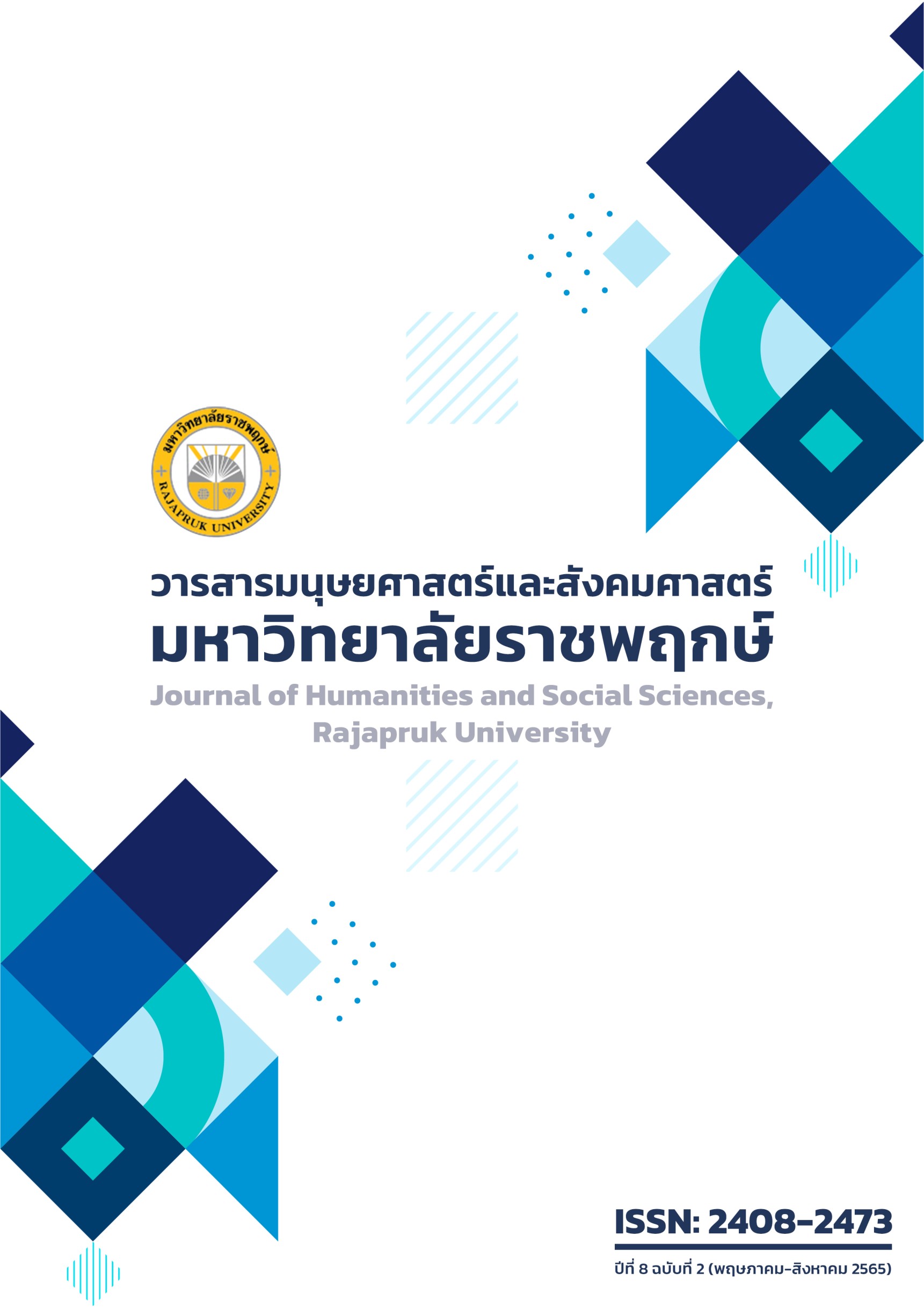Technology Acceptance Factors Affecting Consumer’s Buying Decision Process of Furniture and Home Decoration via Online
Main Article Content
Abstract
The purposes of this research were: 1) to consumer’s buying decision process of furniture and home decoration via online channels in Bangkok with different demographic characteristics and 2) to investigate technology acceptance factors affecting consumer’s buying decision process of furniture and home decoration via online channels in Bangkok. The sample size concluded 400 customers, who bought furniture and home decoration via online channels and also lived in Bangkok. A research tool was the questionnaires with a confidence index of 0.95. The statistics used in the research were frequency, percentage, mean, standard deviation, t-test, F-test and multiple regression analysis at a statistical significance level of .05.
The research result revealed that most of the samples are female; age between 21-30 years old; Bachelor's degree; employee and having income between 25,001-35,000 THB per month. The overall level technology acceptance factors were at the agree level of opinion. The overall buying decision process were at a high level. Results of the hypotheses indicated that the consumers with different average monthly incomes affect the buying decision of furniture and home decoration via online channels differently all process and consumers of different ages influence the buying decision process in the information search, evaluation of alternative and post - buying behavior. Furthermore, perceived ease of use significantly affected on buying decision of furniture and home decoration via online channels all process and perceived usefulness significantly affected on buying decision process in the problem recognition, information search, evaluation of alternative and decision making.
Article Details
References
กรรณิการ์ ชัยอำนาจ และ กฤษฎา มูฮัมหมัด. (2563). ปัจจัยที่มีผลต่อการตัดสินใจเลือกซื้อสินค้าออนไลน์ผ่านทางแอพพลิเคชั่น SHOPEE ของคนวัยทำงานในเขตกรุงเทพมหานคร. ใน การประชุมนำเสนอผลงานวิจัยระดับบัณฑิตศึกษา ครั้งที่ 15. 955-969.
กัลยา วาณิชย์บัญชา. (2549). การใช้ SPSS for Windows ในการวิเคราะห์ข้อมูล. กรุงเทพฯ: จุฬาลงกรณ์มหาวิทยาลัย.
กิตติวัฒน์ จิตรวัตร. (2559). ปัจจัยการซื้อสินค้าออนไลน์และคุณภาพเว็บไซต์ที่ส่งผลต่อการตัดสินใจซื้อสินค้าจากเว็บไซต์ลาซาด้าของผู้บริโภคในกรุงเทพมหานคร. ปริญญาบริหารธุรกิจมหาบัณฑิต มหาวิทยาลัยกรุงเทพ.
เกวรินทร์ ละเอียดดีนันท์. (2557). การยอมรับเทคโนโลยีและพฤติกรรมผู้บริโภคออนไลน์ที่มีผลต่อการตัดสินใจซื้อหนังสืออิเล็กทรอนิกส์ของผู้บริโภคในเขตกรุงเทพมหานคร. การค้นคว้าอิสระบริหารธุรกิจมหาบัณฑิต มหาวิทยาลัยกรุงเทพ.
นวรัตน์ ช่วยบุญชู และคณะ. (2562). การยอมรับเทคโนโลยีและคุณภาพการบริการที่มีอิทธิพลต่อความจงรักภักดีของผู้ใช้บริการธนาคารอิเล็กทรอนิกส์. Economics and Business Administration Journal Thaksin University, 11(1): 31-52.
บวรลักษณ์ เสนาะคํา. (2562). ปัจจัยที่มีอิทธิพลต่อการตัดสินใจซื้อสนิค้าผ่านเครือข่ายสังคมออนไลน์ของ นักศึกษาระดับปริญญาตรีในกรุงเทพมหานคร. วารสารรัชต์ภาคย์, 13(31): 42-54.
รัชนีพร แก้ววิชิ. (2561). การรับรู้และการเข้าถึงผู้ใช้งานแอปพลิเคชัน BTS SkyTrain. การค้นคว้าอิสระนิเทศศาสตรมหาบัณฑิต มหาวิทยาลัยกรุงเทพ.
วรรณิกา จิตตินรากร. (2561). การยอมรับเทคโนโลยีและพฤติกรรมผู้บริโภคออนไลน์ ที่ส่งผลต่อการตัดสินใจซื้อสินค้าจากบริษัทขายตรงผ่านช่องทางออนไลน์. การค้นคว้าอิสระบริหารธุรกิจมหาบัณฑิต มหาวิทยาลัยกรุงเทพ.
Asean Living. (2018). เฟอร์นิเจอร์มีกี่ชนิด แต่ละชนิดมีข้อดี-ข้อเสียอย่างไร. Retrieved April 22nd, 2021, from https://www.aseanliving.com/blog/decor/19-types-of-furniture.html.
BLT Bangkok. (2018). ตลาดเฟอร์นิเจอร์สดใส รับอสังหาฯโต. Retrieved on March 17th, 2021, from https://www.bltbangkok.com/news/4369/.
Liu, Y., and Yang. Y. (2018). Empirical examination of users’ adoption of the sharing economy in China using an expanded technology acceptance model. Sustainability, 10(4): 1262.
Moslehpour, M., et al. (2018). e-purchase intention of Taiwanese consumers: Sustainable mediation of perceived usefulness and perceived ease of use. Sustainability, 10(1): 234.
Simon, K. (2021). DIGITAL 2021: THAILAND. Retrieved on March 17th, 2021, from https://datareportal.com/reports/digital-2021-thailand.


